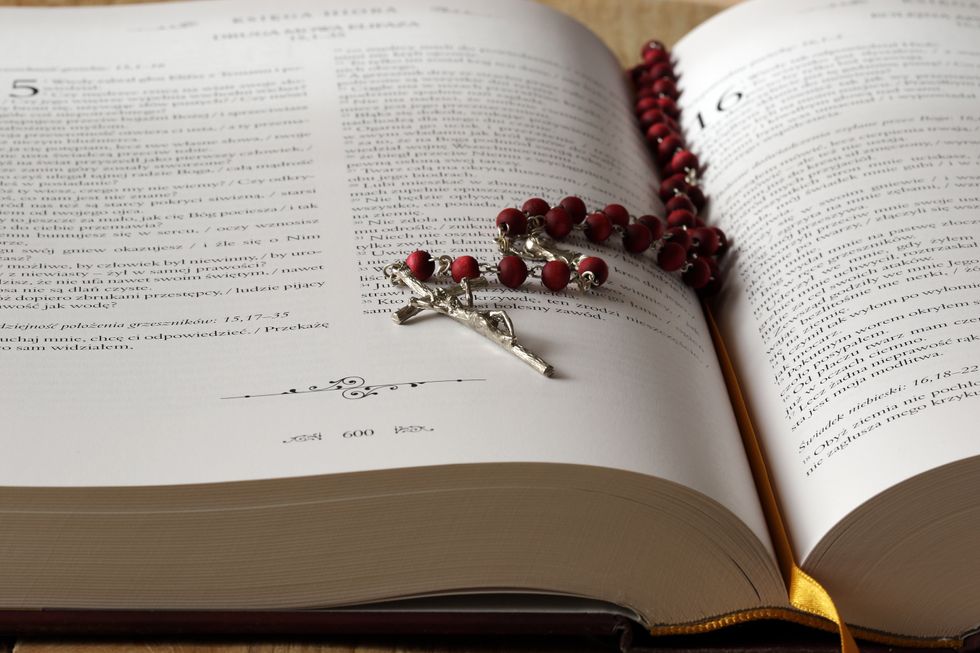In all 18 years of my life, I can count the number of times I went to church on one hand. I have never read the Bible, and I wouldn’t be able to recite a prayer if my life depended on it.
I grew up as an atheist in a family of atheists, so religion holds no importance to me. To some, this is despicable. An abomination even. For me, however, this is normal life.
When I first tell people that I was raised atheist by my parents, their first reaction is a mix between horror and sympathy. They condemn my parents for forcing atheism on me as if I had suffered some extreme case of emotional abuse. They would call it a tragedy, claiming that I was brainwashed. Not only was I offended by this response — my parents are the most open and understanding people I know — I was also dumbfounded. Couldn’t the same principle be applied the other way around? Weren’t they brainwashed by their parents into believing God is real?
The truth is that I always had a choice. My parents have kept the idea of going to church open since I was a child, but it was my decision to skip it. In retrospect, the fact that I was so young might have influenced my adversity to the idea. I was an energetic kid, so the idea of sitting quietly for an hour straight wasn't too appealing. Growing up, however, my reasons for not attending church centered around the fact that there were many values I didn't personally agree with. Leaving religion out of my life was always a decision I made for myself, not something my parents forced on me.
College, admittedly, has sparked my interest in learning the history of religion and all the sacred stories I've missed out on. One of the downsides of being raised fully atheist was the lack of religious references I understood in English classes. Still, no matter what conclusion I ever come to, my parents have always made it perfectly clear to me that their opinion or love for me will never change.
Unfortunately, while homelife was a safe place for all opinions, real life was a different story. I was in fourth grade when I experienced contempt for atheism for the first time. A fellow classmate had called me “Hitler” because I didn’t believe in God. We were nine. We were nine years old, and another child had the audacity to compare me to a man who led a genocide campaign. Moments like this only strengthened my disbelief in religion. It seemed completely backward to me that someone who followed God and a life of morality would say something so cruel.
Instances like this followed me throughout life. They weren’t as significant as the Hitler statement but affected me nonetheless. Sometimes I was greeted with disbelief; other times disdain. Once a woman told me she’d pray for my soul, and I don’t think she realized how insensitive her statement was. I felt as though she was invalidating my viewpoints and opinion, and that somehow her perspective was superior to mine.
At one point I had gone through a phase where I felt guilt and shame for not believing in religion. In a sense, I felt looked down upon, as though I was nothing more than an immoral outcast from society. I was a sinner, and I would burn in Hell for eternity. God would have no mercy on a non-believer soul like mine. When you’re in your early teens and just trying to figure out the world for yourself, having this sort of ideology instilled in you can be damaging. There were times when I thought about buying myself a cross necklace just so I would look like a good Christian girl. I thought that was what the world wanted me to be. I wanted to lie to myself and pretend to believe in things I didn’t support just so the social ramifications wouldn’t be so bad. I tried to bring God into my life because I figured that if he was so extraordinary, he could show me the light. He could guide me and make the fear go away.
For the most part, I got over this feeling but every now and then it creeps under the surface again. Sometimes the flyers I’m handed on-campus center around religion or God, and I’m hit all over again with the shame. I’m older now and built up resilience over the years, so these bouts of self-deprecation don’t last long; the reminder that my perspective is still largely unsupported, however, stays with me.
My life isn’t ruined or full of discrimination because I’m atheist. My plight is nothing like that of truly oppressed minorities, and I would never try to claim otherwise. I just wish having a different viewpoint didn’t mean you were outcasted. Of course, there are immoral viewpoints that subjugate others, but I don’t believe atheism hurts anyone. To me, it is simply a personal philosophy of sorts that became an integral part of who I am. I’m like my father that way — atheist and proud to be so.









































